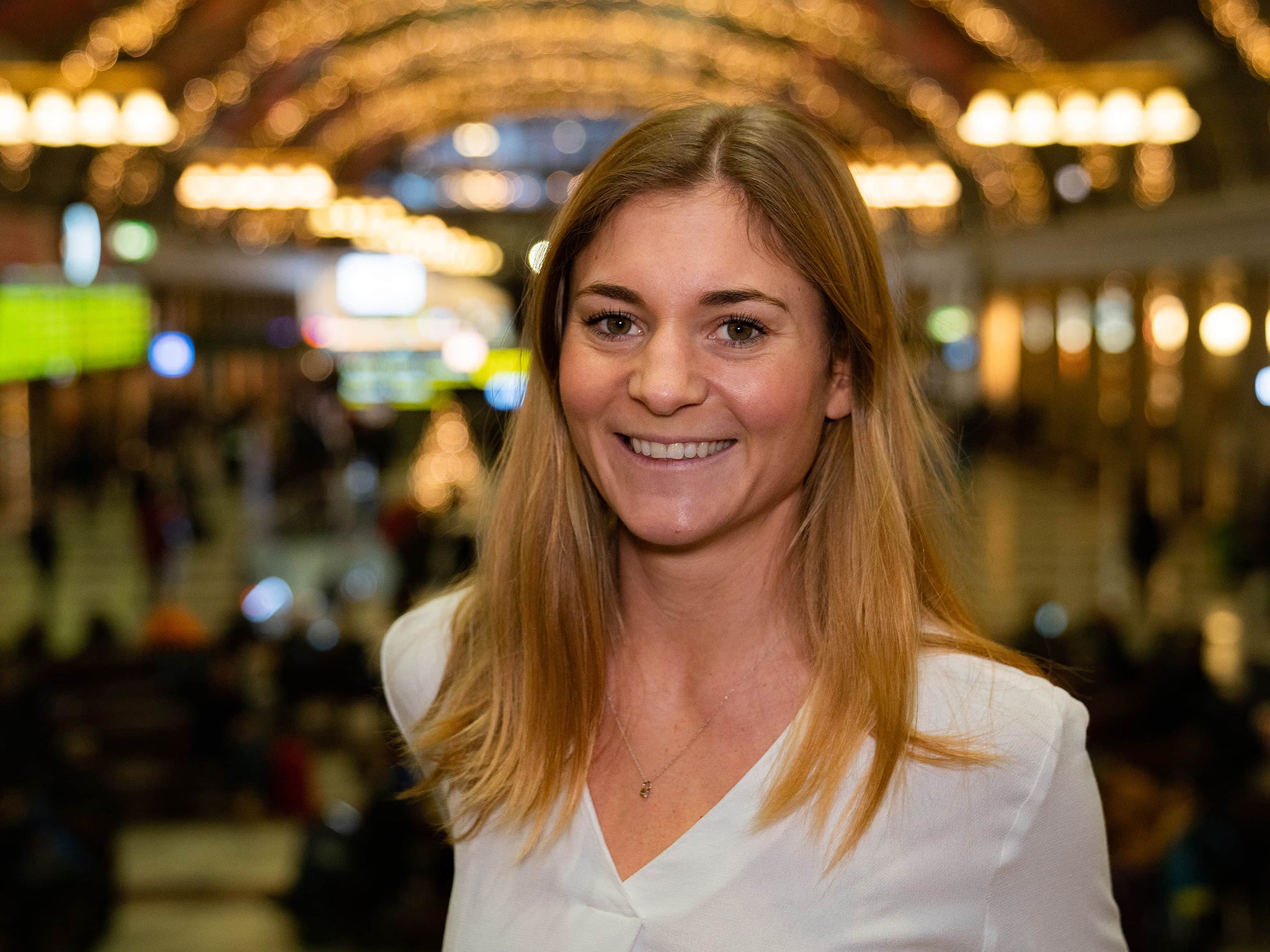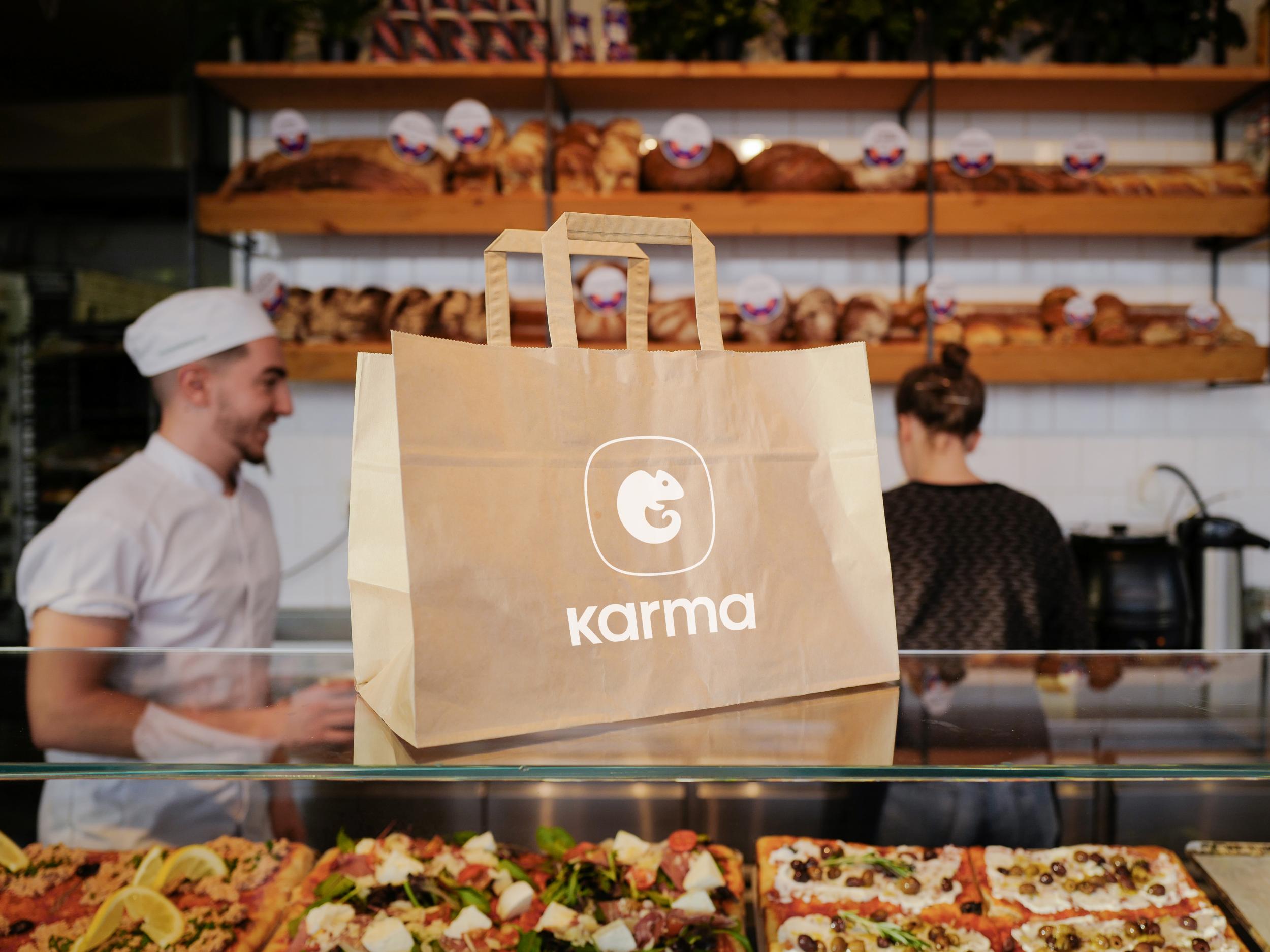‘It’s a win-win’: The app helping restaurants and consumers tackle food waste
Born out of failure, Karma’s ultimate mission is to build the first ‘zero food waste generation’ by offering a unique approach to takeaways, writes Zlata Rodionova


It is estimated that 1.3 billion tons of food is thrown out or wasted every year across the world. This amounts to one-third of all food produced globally, according to the United Nations Food and Agriculture Organisation.
Of course, wasting food is also hurting the environment. Not only due to products filling up landfill sites, but also in the energy wasted producing food that is later thrown away. If food waste was a country, it’s estimated that it would be ranked third after the US and China in terms of greenhouse gas production.
That’s where businesses like Karma step in. The platform helps restaurants and grocery stores to sell food that is at risk of being thrown away towards the end of the day.
For consumers, it’s an easy way to get a tasty takeaway for half the normal price, with Karma receiving 25 per cent of the sale price. All they need to do is download the app, pick the meal they want to buy, get a digital receipt in their name and go to the restaurant of their choice to pick up their takeaway.
“It’s a win-win concept. Businesses get to drive new customers and footfall to their stores, and save money by not wasting their produce, while users save money on their takeaways and eat well,” Elsa Bernadotte, the COO and one of the four co-founders of Karma, tells The Independent.
The Swedish start-up was founded in Stockholm in 2016 and after just four years in business, it now helps serve 1 million users in Britain, France and Sweden combined.
In the UK alone, there are nearly 2,000 outlets selling their excess food through Karma. French restaurant chain Aubaine, Italian food chain Coco di Mama, Daylesford’s farm shop and cafes and Japan Centre stores are just some of the businesses signed up to it.
Since its launch, about 2 million meals have been saved through the app – the founders’ proudest achievement to date. Given its current success, it’s perhaps surprising that, like many other start-ups, the concept for Karma was born out of failure.

The founders’ original idea was to create a community-driven version of Groupon. “It took us about eight months to realise it isn’t working, it’s not solving a problem and we are not passionate about it,” Bernadotte says. “The whole idea behind it was how can we find fun ways to reward people and encourage them to share data and help retailers understand their business at the same time. Today, we’re doing it in a similar way, but from a totally different angle. Our whole mission is about solving food waste and using the knowledge we have from Karma to do so.”
With climate change and food waste increasingly hitting the headlines, other businesses have jumped on the bandwagon. Too Good To Go and Olio are just two other examples of apps that also allow people to pick up surplus produce. But according to Bernadotte, the difference between Karma and its rivals is that customers will see specifically what they’re buying. This is particularly important for those with dietary restrictions, as well as vegans and vegetarians.

By comparison, Too Good To Go portions out its leftover food into “Magic Bags” and it can be a combination of things from sides to snacks or starters.
Karma’s ultimate mission is to make us the first “zero food waste generation” so the app is also about prevention and prediction. “It’s about actually predicting how food will be wasted and preventing it from even happening,” Bernadotte explains. “We look at user choice and, for example, the app can help a restaurant see that if they actually lower their production in a particular area, it can become more optimised.”
The company currently employs 75 people, including a team of 13 in the UK, and it’s now focused on innovating and expanding. Its latest innovation is the hard-to-miss pink fridges placed in cities where Karma operates. There are more than 30 in operations across Sweden, one in Paris and one in London, which has been installed at the Japan Centre in London’s Westfield shopping centre.
The aim of the fridges is to remove additional employee resources needed to handle customer transactions and make it less time consuming for shops. Customers coming to a shop to buy cut-price food can pick up the food in a communal fridge where it’s ready to be collected.
“One of our biggest challenges is definitely creating awareness and educating businesses. Not always of the issue itself but of the fact that it’s okay as a food business to admit that you have food waste. We really try to not point fingers, we get it,” Bernadotte says. “But that doesn’t mean that it’s okay to just rest on your laurels. So part of our mission is to help them and make them feel positive too. Instead of being afraid of being part of the problem, we want them to be part of the solution.”
Of course, food waste – and how we deal with it – is now an issue of global importance and the task ahead is huge, but Bernadotte remains cautiously optimistic. “I am a natural optimist and I think everything is getting better all the time,” she says. “Businesses are cleaning up their act. They’re becoming more aware and receptive, while consumers are becoming more educated and open-minded when it comes to trying new things. So it’s a positive circle in that way.
“That said, we do need to do more. I’m super proud that we have rescued millions of meals but to me that is output, it is not outcome. It doesn’t move the needle on the global scale of things. There’s not a solution that fits all and there needs to be several Karmas out there attacking different parts of the issue of waste.”
Join our commenting forum
Join thought-provoking conversations, follow other Independent readers and see their replies
Comments